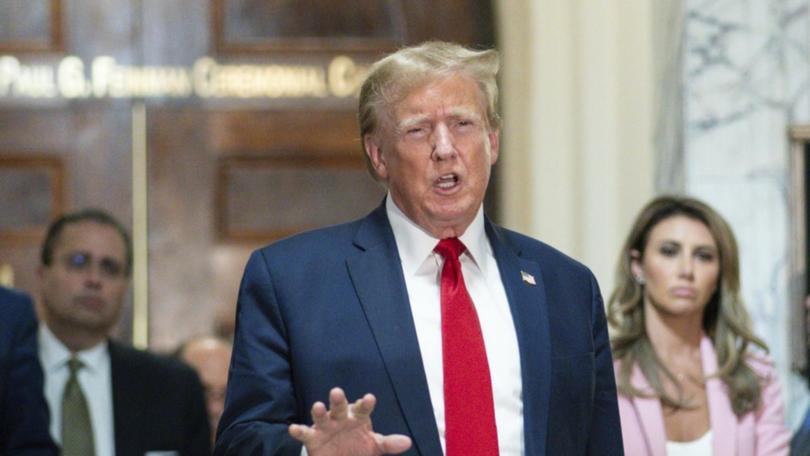Donald Trump told he can't deliver fraud trial closing arguments
A judge has reversed course and will not allow Donald Trump to deliver a closing argument in his civil fraud trial.

Donald Trump cannot personally deliver a closing argument in his civil fraud trial, a New York judge says after the former US president’s lawyer did not agree to conditions that would prevent him from delivering a “campaign speech”.
The development comes a day before closing arguments in a case brought by New York’s attorney general that accuses Trump of inflating his net worth by billions of dollars to secure better loan terms.
Justice Arthur Engoron initially agreed to let Trump speak but reversed course after his lawyers did not agree to strict limits on what he could say, according to an email chain filed on the court’s docket.
Sign up to The Nightly's newsletters.
Get the first look at the digital newspaper, curated daily stories and breaking headlines delivered to your inbox.
By continuing you agree to our Terms and Privacy Policy.“He may not deliver a campaign speech, and he may not impugn myself, my staff, plaintiff, plaintiff’s staff, or the New York State Court System, none of which is relevant to this case,” Engoron said.
Trump’s lawyer Chris Kise objected but did not agree to the terms by Engoron’s noon Wednesday deadline, the filing shows.
“Is anyone surprised anymore?” another Trump lawyer, Alina Habba, said in a statement.
New York Attorney General Letitia James, an elected Democrat, is seeking nearly $US370 million ($A552 million) in damages from Trump, 10 of his companies and his two adult sons, Donald Jr. and Eric Trump.
Engoron found Trump liable for fraud in September, leaving the trial to focus largely on damages.
The lawsuit is one of many legal troubles Trump faces as he campaigns to challenge President Joe Biden in the November 2024 election, although none have diminished his commanding lead over rivals.
Trump has complained that the trial interfered with his campaign schedule but used his occasional, voluntary court appearances to rally support with inflammatory remarks before news cameras outside the courtroom.
He has denied wrongdoing and said the case is a political witch hunt, accusing both James and Engoron of political bias.
The state’s lawyers sought to show that Trump consistently overvalued many of the towers, golf clubs and other assets that burnished his reputation as a business mogul before he entered politics and won the 2016 presidential election.
Trump’s lawyers have argued that the property valuations were subjective and that banks were not harmed by any alleged inaccuracies because they profited from the loans.
